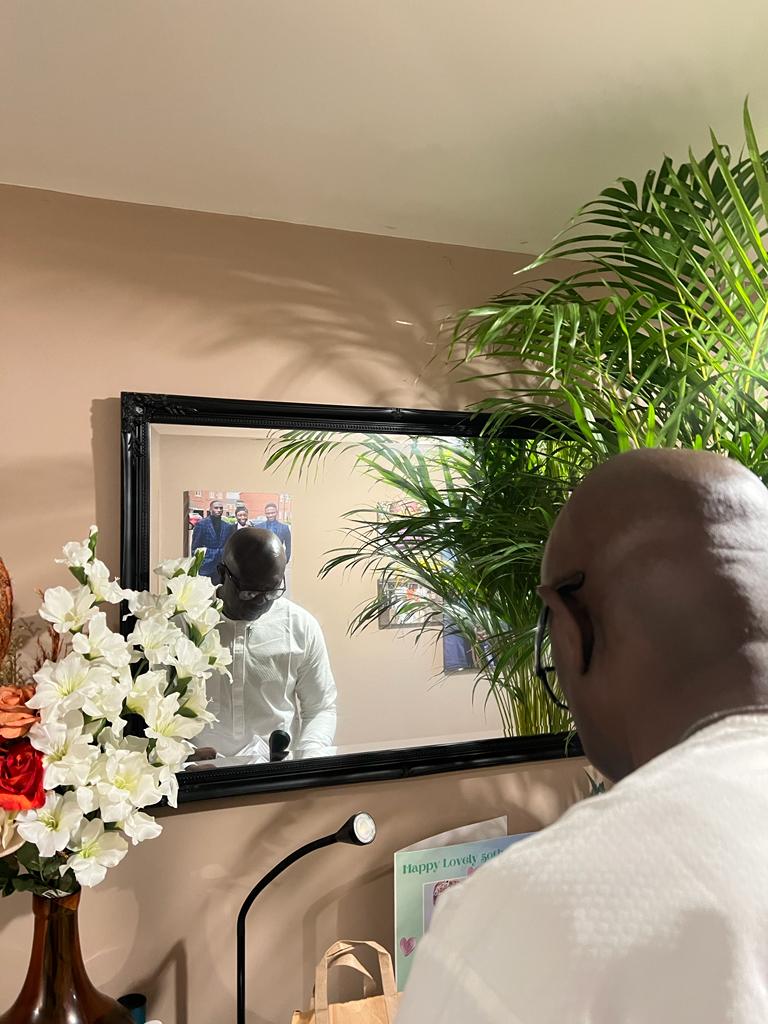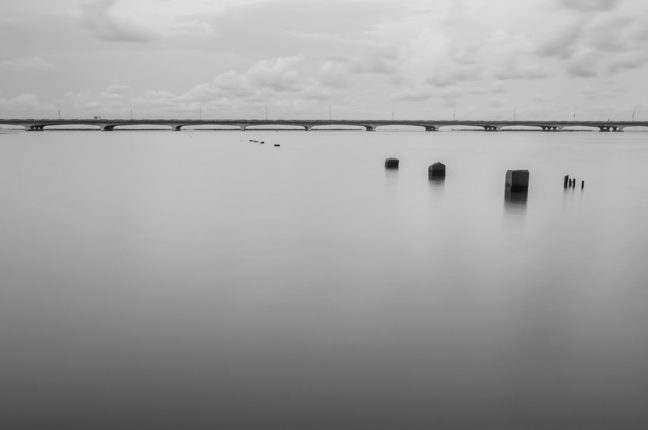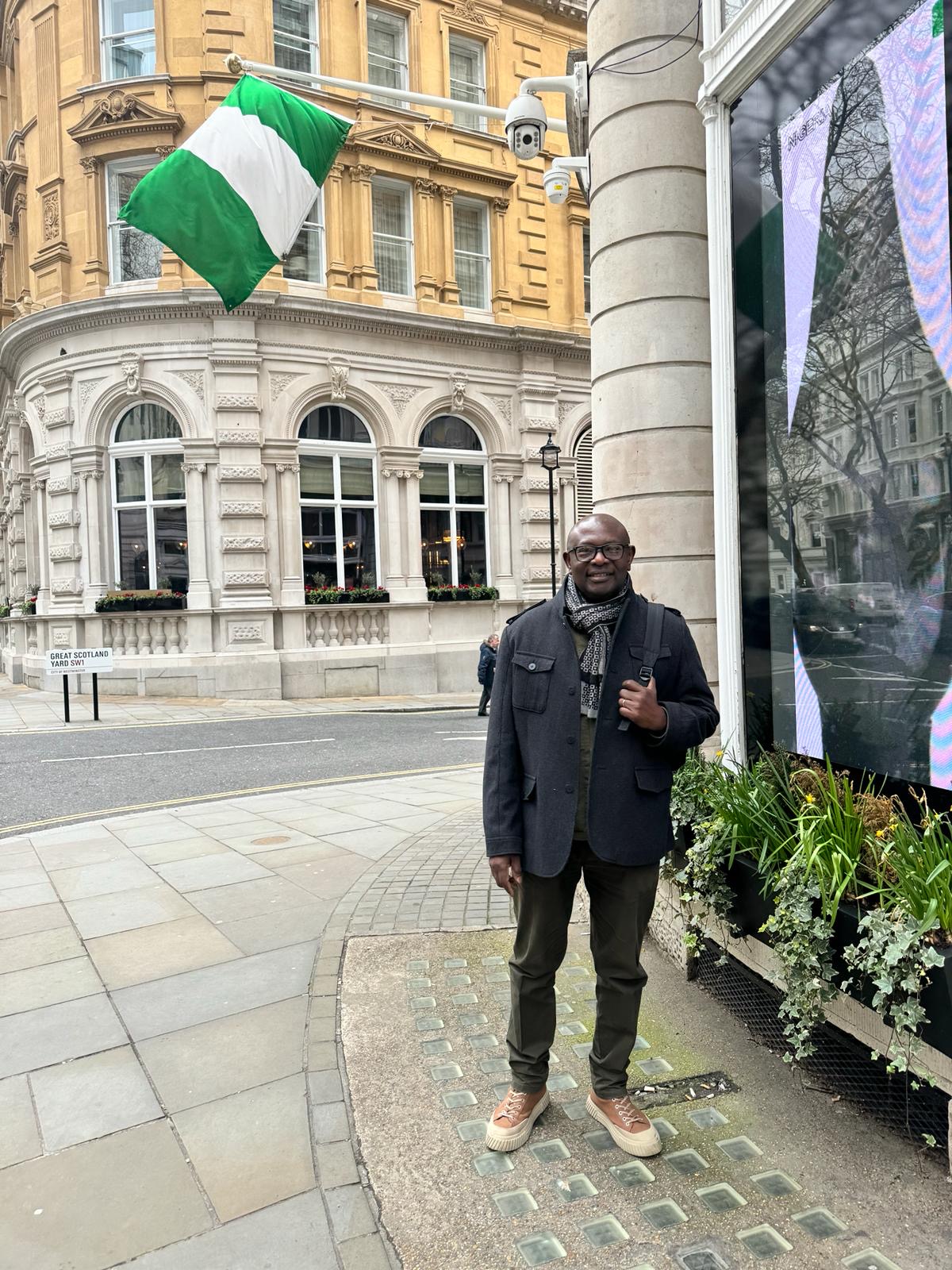by Morak Babajide-Alabi
Continued from last week.
The taxi finally rolled to a stop. The driver turned around. With a broad smile, he said: “We don reach o (meaning: We have gotten to the destination.)” I ignored him, as I did not want him to interrupt my trail of thoughts for a few minutes. I knew we had arrived at my cousin’s house. But I waited a few minutes to take in the changing environment.
We had driven through a well-lit and paved road. The estate is an upper class, by Lagos standard. It accommodates former governors, serving senators and directors of federal agencies. There are also some nobodies with any real sources of income but living lives of opulence. It is their land.
There are people from all walks of life. But one thing seems to bind them together – the availability of funds to buy comfort. The inhabitants pride themselves as the privileged ones. It is, thus, not unusual to see motorcades of latest cars at odd hours of the day and night. Nigerian money resides there. To them, it is no crime to show off the money, hence the massive sizes of the houses and the electricity generators. This the land of the rich.
But as things have changed in the country, these lots do not enjoy anything special. There is stable, uninterrupted electricity supply in and outside the estate. So, there is nothing to flaunt. Residents in Ikotun and Ajegunle enjoy 24-hours electricity supply now. The big generators in this estate were sitting idle. No more air and noise pollution. Some of them may be sold off. But to whom? It felt strange. It will definitely take some time for me to get used to the quietness. It did not “sound” like the Lagos that I know. Whose land is this?
“Oga, make we drive-in,”? The driver asked. I could not disregard him further. “Absolutely. Please beep your horn gently to alert the gateman.” His impatience took a better part of him, and he did the opposite. He blared the horn of the car. “Wetin?” I shouted. At this point, I felt the urge to speak to him in the lingo that he understood better. Because of the absence of the familiar noises, the horn sounded like a train pulling into King’s Cross station. I saw some neighbours peeping behind the curtains to see what the noise was all about. They were no longer used to unusual noises.
As the security situation has improved, there was no need for a gateman. I noticed a few police patrol cars driving past as we came into the estate. But I know my cousin. As a kind-hearted man, he would keep his gateman and not throw him out of a job.
I cringed in my seat as the gateman approached the car. I rolled down my window. “Dan-Ladi, it’s me,” I said. He peeped for a few seconds and immediately on recognition raised his two hands in salute and said “Oga!” and ran back towards the gate to open it. I always admire Dan-Ladi. He is smart, reliable and exceptionally amiable. He is from a village in Katsina State. For emphasis, he would add that his village is tens of walking kilometres away from Daura “city”.
During a visit in 2015, I engaged Dan-Ladi in a chit chat on his expectations of the elected President. I recall his reaction. He looked down at his dusty feet and looked at my face as if surprised how dirty there were. He stepped back from me and said: “Walahi! Dis (this) one na different.” He informed me President-elect Muhammed Buhari, was in a league of his own. He said he was incomparable with “those yeye leaders before.” In broken, highly accented English told me that Buhari represents the anointed saviour for the country. Dan-Ladi saw himself as the reincarnation of the great Nostradamus. He predicted that Buhari would turn the country around for good.
The bases of his arguments were relatively trivial, but I could not dispute any of them. I gave it to him as there was no pretence of intellectualism in his arguments. His support was based on the coincidence of proximity of his birthplace to that of the President. Nothing more.
Dan-Ladi was just an individual among the millions that were ready to deflect bullets for Buhari. From the north to the south, the west to the east, the hope of a better tomorrow for the country was “contagious.” The likes of Dan-Ladi hailed a leader they knew nothing about but felt they knew everything about. A handful of people who could see beyond the political belligerence and charade struggled to caution. They shouted from rooftops that in life, things may not be what they seem like. These thoughts got discounted by the supporters of the All Progressives Congress (APC). The land is theirs, they claimed
I slipped into the history of the land. Apart from Aare Moshood Abiola, the 1993 Social Democratic Party (SDP) presidential candidate, no other individual enjoyed as much goodwill as Buhari. The masses believed in M.K.O Abiola because he had a track record of extraordinary capabilities. In fact, before the elections, Abiola was at the height of his financial successes. This instilled a kind of confidence in the masses that he “was the man.” The rest is history.
The opposing individuals that saw the danger of the unquestioning loyalty of the masses to the APC Presidential Candidate got shut down. They were enemies of the state or labelled corrupt individuals afraid of “change.” The calls for reality checks on the abilities of “Mr Integrity” got drowned by the shouts of “Sai Baba.” The likes of Dan-Ladi were everywhere to remind us of the “successes” in Buhari’s first coming. They whipped all dissenting voices into line. They told us stories of how his eighteen months reign from 1983 to 1985 turned mother land around.
I could not fault Dan-Ladi’s charming stories of how everything was good. You can forgive him as he was still a baby in his village at the time. He had no idea of history or any opportunity to learn of the dark period in history. What of the numerous older Nigerians that danced on the streets when the Buhari’s regime got sacked? Some of them were part of the history-distorting team. They were content to turn history upside down. It is their land.
They mounted the soapboxes and sold the Buhari dream to Nigerians. They left out stories of extra-judicial actions, the high handedness and lack of firm economic plans. It was convenient to forget the lengthy queues for foods and basic amenities under the regime. The restricted access to foreign exchange and the ban on importation without alternatives did not make “history” books.
“Oga, welcome to the land,” Dan-Ladi’s voice broke the pace of my thoughts. I averted Dan-Ladi’s eyes as I muttered: “bless you.” I stepped out of the cab, to the visible relief of the driver. He followed me with his eyes, trying to understand my “strange behaviour.” But I did not allow him to plan a conclusion before I jumped into his thoughts. “Abeg open the boot make the guy get the luggage.”
My struggle now is how to save face with the likes of Dan-Ladi and the various individuals that I engaged in 2015. They will be honoured, as they reap the benefits of what they believed in. What else could they have asked for? Electricity is stable, water runs in every tap, and security is in place. Health services are affordable. There is no more medical tourism abroad. We now run into ministers, commissioners, governors at Ikotun or Ikorodu General Hospitals.
Dan-Ladi’s penetrating eyes made me very uncomfortable. He was waiting for the right time to say “Oga, I told you, Buhari na de man.”
To be continued next week.
As written for the Diaspora Matters column, Sunday Vanguard, December 8, 2019.







